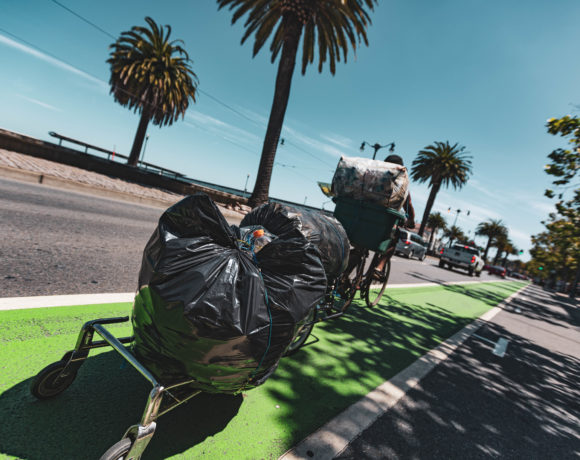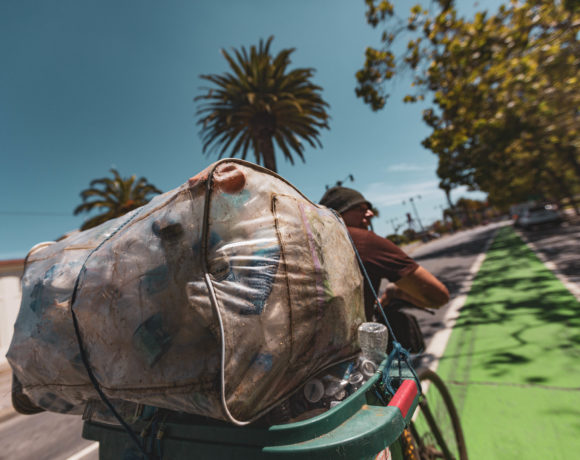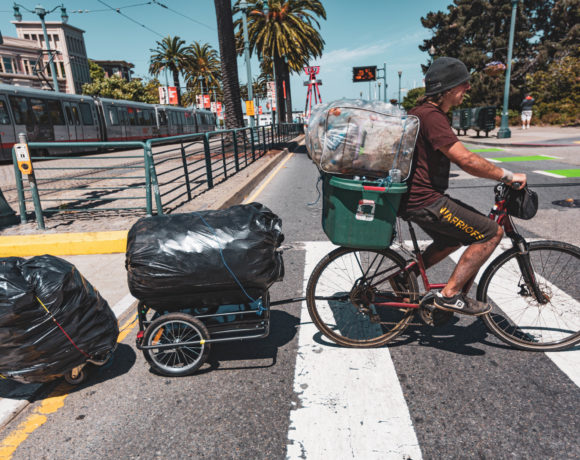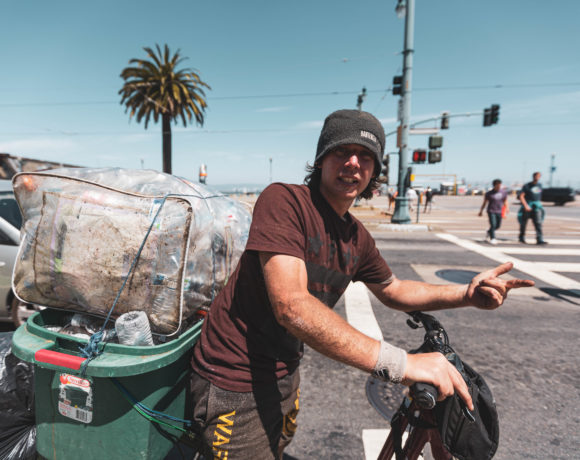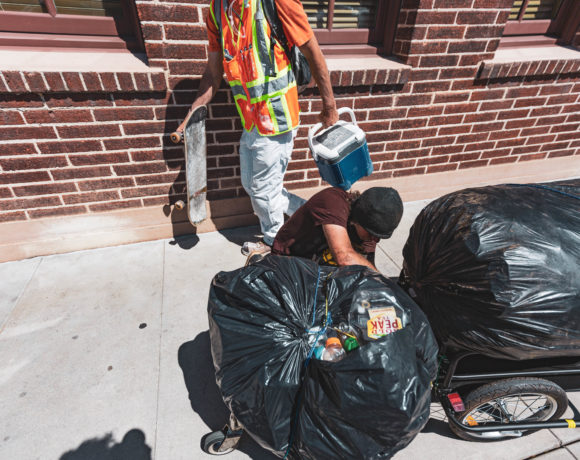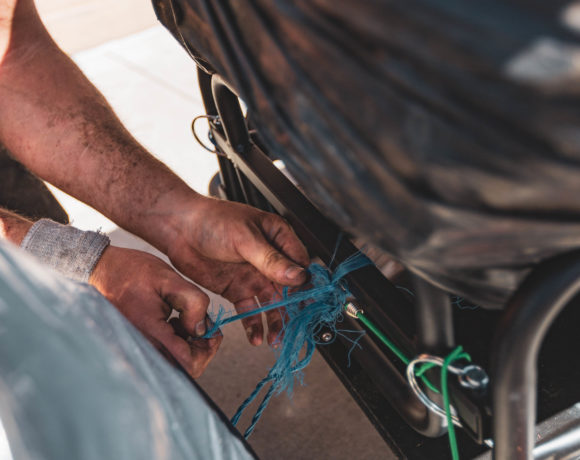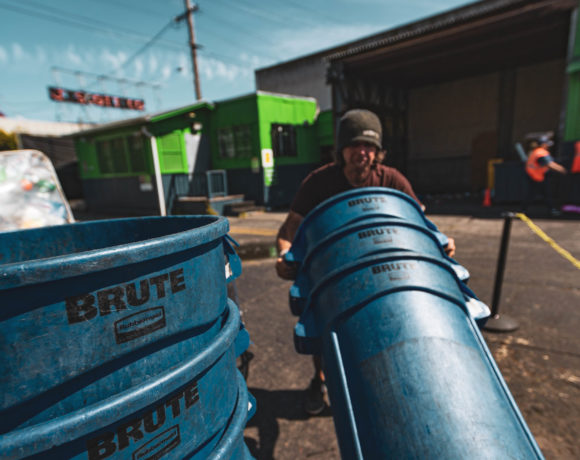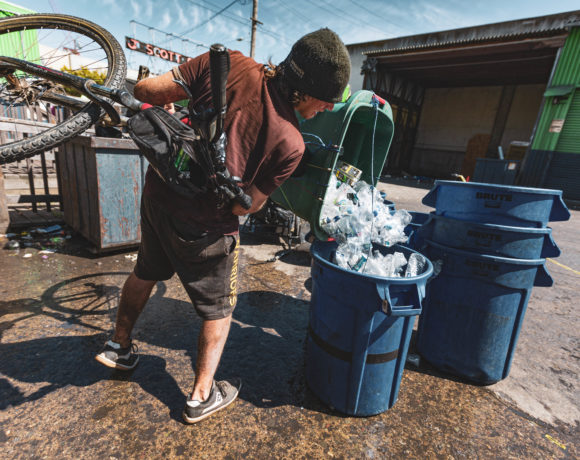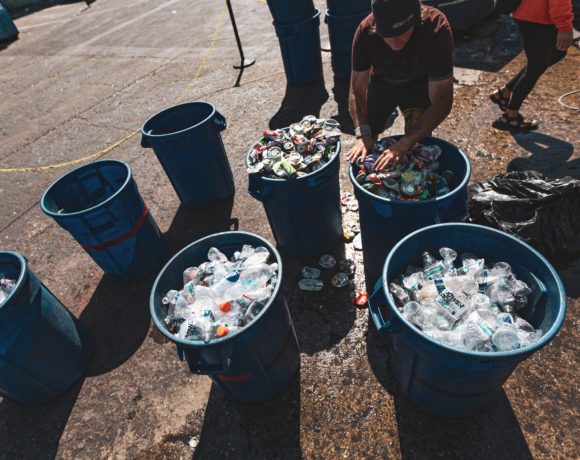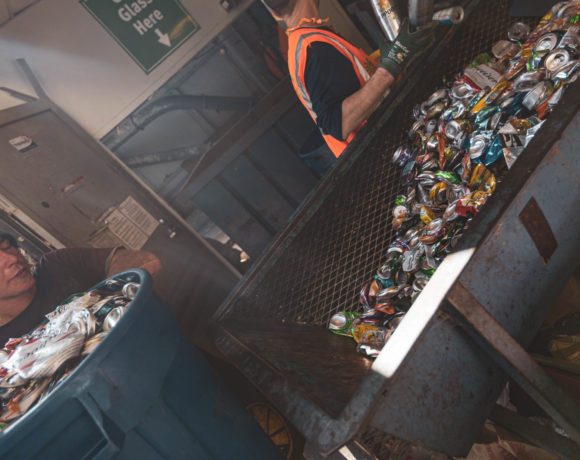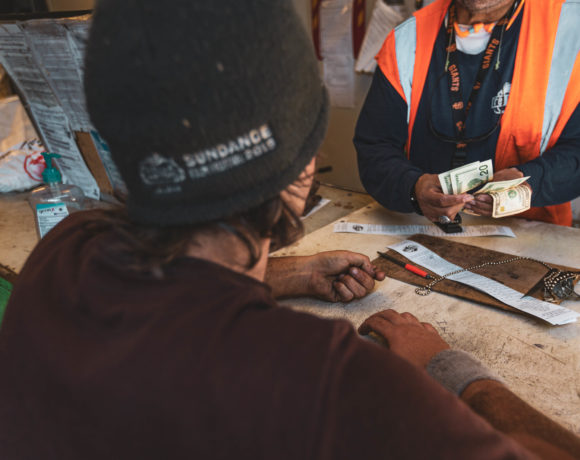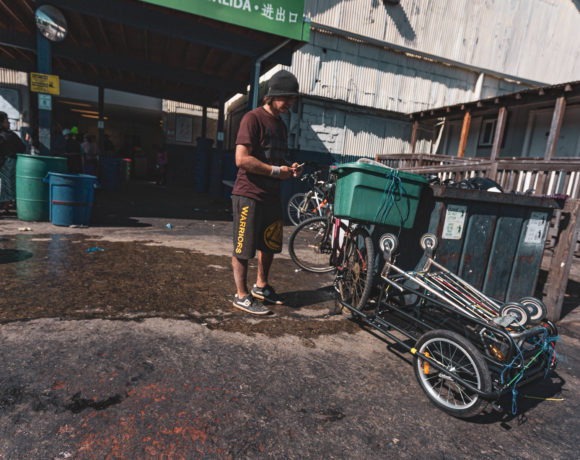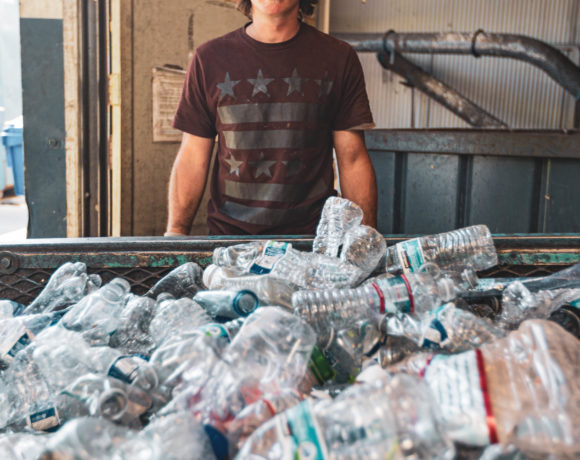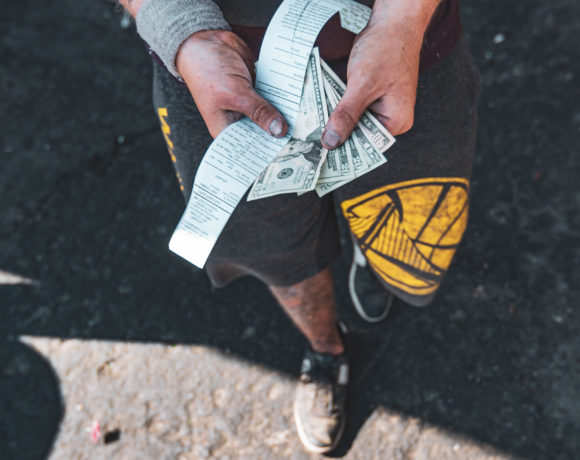Jason, a 29-years old homeless, he makes a living redeeming recyclables
LOGBOOK 3 #PACIFICTRASHPATCH
It is 3 p.m. and I am riding a rented bike to rePLANET, a recycling centre in San Francisco, where my new friend Jason is taking his catch of the day.
He is a 29-year-old homeless man, and like many of the homeless here, he makes a living redeeming recyclables, such as cans and plastic bottles.
I met him half an hour ago on my way to the train station. I approach him from behind and ask if it is okay to accompany him to wherever he is heading. I want to know more about what he is doing.
He is clearly tough, timid and suspicious, but for some reason he agrees and we soon start to talk. He rides a mountain bike that, he later tells me, he found in a dumpster. He is also pulling two trailers fully loaded with 28 pounds (12 kg) of recyclable materials.
“This is how I eat,” says Jason, riding his bike slowly uphill. “It gets me lunch, cigarettes, coffee, it also allowed me to buy the second trailer.”
For the following hour, we ride side by side. His life is hard as hell, you can tell just by looking at his face and the dark circles under his eyes. He goes on to tell me details of what it’s like to spend days and nights scouring the streets for any can or bottle that will bring in money.
“One night I got robbed of my plastic bottles. There is tough competition, it can be dangerous but it is worth it. At least I do something, I have a goal every day, not like those people just begging for some money or food.”
I ask him if this business is profitable and immediately realise it is a really stupid question. Of course it is profitable. “It is more than nothing,” I add, attempting to rectify.
He replies: “I can make good money. All soda containers carry a 5 cent redemption value; above that is 10 cents. By law I can redeem 50 items of each and receive the unit value in cash. Any amount more and redemption is calculated by weight. “Aluminium is $1.62 per pound, PET plastic $1.26 per pound, Polystyrene is our golden nugget because it is traded for $5.48 per pound.”
Jason is a smart guy, unlike the vast majority of homeless I see on the street, suffering from mental issues. He seems very together. He is committed to taking back his life, have his own business and one day a family. I still don’t understand how he ended up like this and, before I can even ask, he tells me is not willing to share his story. I respect his wishes!
We arrive at the recycling facilities at 4 pm and before us there are ten other people waiting their turn to return plastic and cans. We wait about 40 minutes in the queue, surrounded by six smelly bins.
When it is Jason’s turn he piles up the plastic in a container, the staff man skims the plastic and separates the recyclable from the non-recyclable material, than he weights it. Meanwhile, Jason tells me “Last night I slept on the ground right there, with my bike and the trailers full loaded, aiming to be the first to enter and the first to hit the streets again.”
Recycling in California started nearly 30 years ago, when state legislators passed Assembly Bill 2020. Known as the “Bottle Bill,” the legislation was designed to encourage recycling and reduce litter in the Golden State.
This seems to be working because the state recycling rate for eligible containers increased from 52% in 1988 to 82% in 2011. Advocates of the bottle bill also cite its success in reducing litter. According to government funded before-and-after studies, “states showed reductions in beverage container litter ranging from 69% to 84% and reductions in total litter ranging from 30% to 65%.” What the legislature did not envisage however, is that recycling would eventually become a means of living for homeless people like Jason to earn money.
The check-out man runs his finger across his calculator, he takes note of numbers, he hands over a receipt to Jason to sign and, ten seconds later, he receives $45. Today, as predicted, Jason has made $98.
I cannot believe my eyes. In my surprise, I realise that collecting is more lucrative than I ever imagined. $90/$100 a day – I think – is more than an Italian minimum wage earner working a 30 hour week!
However, it is still not enough, Jason will sleep on the ground tonight, God knows where.
This is the life of a homeless man like Jason in San Francisco.
